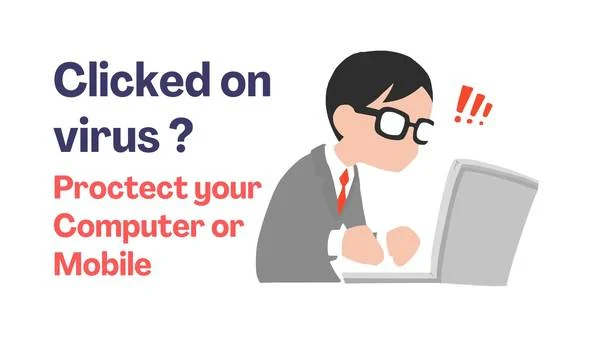A "specious link" refers to a hyperlink or URL that appears to be trustworthy and reliable at first glance, but upon closer examination, shows themselves to be dishonest or have harmful intentions. Such links are crafted to tempt users into clicking on them, which can result in serious effects. In this post, we learn what happens if our computer or mobile gets affected by the virus and how to protect ourselves from the virus.
Why are specious links clicked?
Sometimes users desire to acquire paid software without any charge. The user has downloaded a cracked version of the software or application. At times, individuals may seek to obtain movies or web series without charge through downloading. They visited websites that looked authentic and dependable but were actually misleading.
What occurs if virus files infect our computer or mobile device?
- Data Theft and Unauthorized Access: Beware of malicious software like spyware or keyloggers that can discreetly steal sensitive information like passwords, credit card details, personal documents, and login credentials. The stolen data can be used for identity theft, financial fraud, or unauthorized access to your account. Stay vigilant and protect your information at all times.
- Experiencing Issues with System Performance and Crashing: System resources can be consumed by viruses and other types of malware. This can cause our computers and mobile devices to slow down and even result in system crashes.
- Phishing Attacks: In phishing attacks, attackers create fake websites or pages that resemble legitimate ones. The only discrepancy lies in the URL.
- Spam and Unwanted Advertisements: Malware can cause various issues such as displaying unwanted ads, redirecting your browser, and sending spam emails without your knowledge.
- Privacy: Malware can access your camera and microphone without consent, putting your privacy at risk.
- Financial Loss: Cybercriminals can use malware to steal your money by accessing your financial accounts without permission.
How to Protect yourself from specious files or malware
- Don't download free software or apps: Sometimes, individuals may look for ways to obtain cracked or free software through downloading or cracking methods. During the process, users often turn to suspicious websites for cracked versions of paid software and apps, but legitimate websites do not offer these.
- Don't click specious links: Sometimes we unknowingly click on content that appears safe but actually contains harmful files or malware. So avoid such links.
- If you have clicked, then what should you do: If you click on suspicious files, the first thing you should do is turn off your internet. After that, open the Task Manager on your computer by pressing ctrl+alt+delete. Then select the browser and click on End Task. After that, clear all the data in your browser. To clear all data on your mobile browser, go to settings or long-press the browser icon and select "clear all data. You can also uninstall the browser and re-install it.
- Antivirus scan: Once all processes are complete, it is recommended that you scan your computer with a trusted antivirus program.



